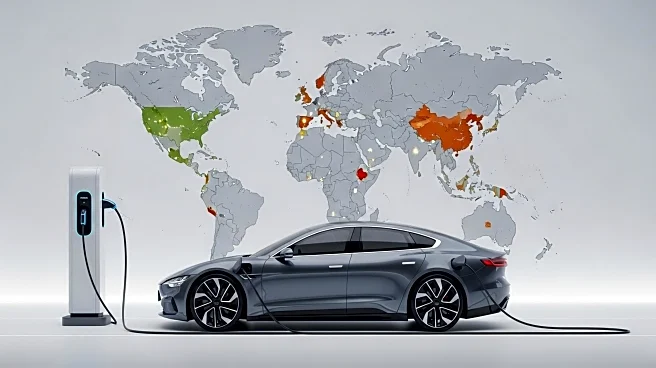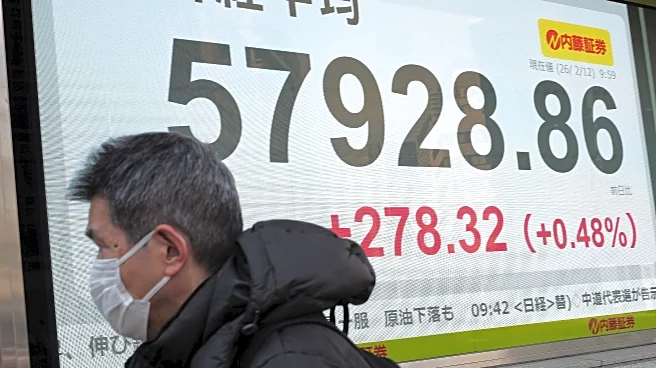What's Happening?
Chery Automobile, China's largest vehicle exporter, experienced a significant surge in its stock price during its debut on the Hong Kong Stock Exchange. The shares rose by 11% above the initial public offering (IPO) price, trading at HK$34.16 compared to the IPO price of HK$30.75. The company raised 9.1 billion Hong Kong dollars (approximately US$1.2 billion) through this offering. Despite the successful launch, Chery canceled its planned listing ceremony due to a city shutdown following Super Typhoon Ragasa. The automaker is actively expanding its market presence in regions such as Vietnam, the Middle East, and Europe, with plans to introduce its SUV-focused sub-brand Jetour in Europe this November. Chery has also been selling vehicles under its flagship brand in the UK and has introduced other marques like Jaecoo and Omoda in Britain.
Why It's Important?
Chery's successful IPO and expansion efforts highlight the growing influence of Chinese automakers in the global market. The company's strategic moves to build locally in regions like the Middle East and Southeast Asia help mitigate risks associated with tariffs imposed by countries such as the U.S., Canada, and the European Union on Chinese-made electric vehicles. These tariffs, which can reach up to 100% in the U.S. and Canada, and up to 45.3% in the EU, pose significant challenges for Chinese automakers. However, Chery's approach to local manufacturing positions it favorably compared to competitors who rely solely on exports. This expansion could enhance Chery's brand recognition and market share internationally, particularly in regions where it is already gaining popularity.
What's Next?
Chery's continued expansion into new markets, such as Europe, with its Jetour sub-brand, indicates a strategic focus on diversifying its product offerings and increasing its global footprint. The company's ability to navigate international trade barriers through local manufacturing could serve as a model for other Chinese automakers facing similar challenges. As Chery introduces new models and brands in various regions, it may further strengthen its position in the global automotive industry. Stakeholders will likely monitor how Chery adapts to evolving trade policies and consumer preferences in different markets.
Beyond the Headlines
The broader implications of Chery's expansion and IPO success reflect the shifting dynamics in the global automotive industry, where Chinese companies are increasingly becoming key players. This trend may prompt other automakers to reassess their strategies regarding international trade and local production. Additionally, Chery's approach to overcoming tariff barriers through local manufacturing could influence future trade negotiations and policies between China and other countries.











